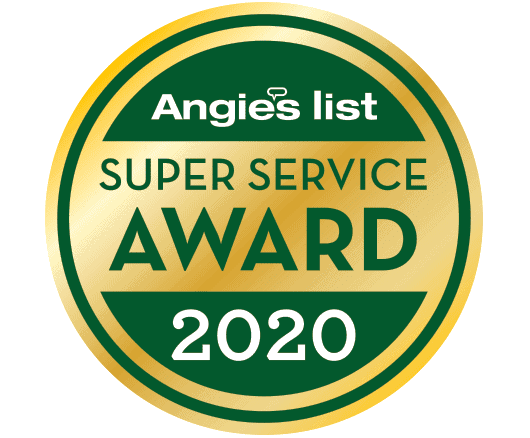Pest Control Auckland: Superior Providers for a Pest-Free Setting
Pest Control Auckland: Superior Providers for a Pest-Free Setting
Blog Article
Comprehending Various Kinds Of Parasite Control Methods and Their Performance
When considering insect control approaches, it is important to comprehend the diverse approaches readily available and their varying degrees of performance. By checking out the subtleties of these insect control methods, a detailed understanding of how to deal with bug concerns can be created.
Chemical Pest Control Approaches
Chemical parasite control approaches play a pivotal function in successfully managing and eliminating pest infestations in different settings. One of the vital advantages of chemical pest control is its ability to provide quick and targeted services to pest issues. Pest Control Auckland.
However, it is necessary to think about the possible risks and drawbacks linked with chemical parasite control techniques. Overreliance on chemicals can result in the development of chemical resistance in parasites, making them more challenging to manage in the future. Furthermore, using particular chemicals can have harmful results on non-target microorganisms, the setting, and human wellness if not applied correctly.

Organic Insect Control Approaches
Utilizing natural killers and virus to manage pest populaces successfully, organic bug control methods provide a lasting and green technique to pest monitoring. By introducing or advertising the activity of microorganisms that normally exploit or contaminate insects, such as ladybugs for aphid control or certain bacteria for caterpillar problems, organic control can assist preserve bug populaces at manageable levels without the requirement for artificial chemicals. This method is specifically useful for natural farming techniques, as it prevents using possibly damaging compounds while preserving plant health.

Physical Insect Control Techniques
While biological parasite control approaches concentrate on using all-natural predators and virus, physical pest control methods utilize mechanical and physical obstacles to take care of bug populaces. These techniques are typically thought about ecologically friendly as they decrease making use of chemicals. Physical bug control includes techniques such as capturing, utilizing barriers like displays or internet, and physically removing parasites from the location.
Traps great post to read are commonly utilized great site in physical pest control to record and remove insects like rats and bugs. These catches can be baited with food or scents to attract the bugs, leading them to a had area where they can be conveniently dealt with. One more physical approach is making use of obstacles such as nets, screens, or fencings to stop insects from getting in or infesting certain areas. For instance, installing great mesh displays on windows can help shut out mosquitoes and flies.
Natural Pest Control Methods
Incorporating plant-based repellents and all-natural killers is a key technique in implementing efficient natural bug control techniques. By motivating the existence of beneficial insects like ladybugs, lacewings, or predative termites, garden enthusiasts can normally manage pest populations. These predators feed on common yard parasites such as termites, caterpillars, and aphids, assisting to preserve a well balanced community without the need for chemical interventions.

Moreover, executing cultural methods such as crop rotation, companion planting, and preserving appropriate plant wellness can additionally enhance the performance of natural parasite control methods. These methods not only aid in stopping parasite invasions yet linked here likewise advertise biodiversity and overall community durability. By integrating these all-natural methods, individuals can successfully manage parasites while reducing ecological impact.
Integrated Bug Management (IPM) Method
Applying an Integrated Insect Monitoring (IPM) approach is vital for successfully controlling insect populaces while minimizing reliance on chemical pesticides. IPM is a thorough and sustainable approach that combines various bug control approaches to achieve long-term services. This technique concentrates on surveillance, control, and avoidance to attend to bug concerns in an eco-friendly fashion.
IPM integrates biological, social, physical, and mechanical techniques with the restricted and calculated use of pesticides when needed. By highlighting proactive steps such as habitat adjustment, organic control, and exemption, IPM intends to reduce pest populations and their impact on the community. Routine tracking is vital in IPM to examine bug levels precisely and identify the most appropriate control approaches.
Among the crucial advantages of IPM is its ability to minimize the threats linked with extreme pesticide use, such as ecological contamination and damage to non-target organisms. Additionally, IPM advertises an extra alternative technique to pest administration by thinking about the general community dynamics. On the whole, the IPM strategy uses a reliable and lasting service for parasite control while advertising environmental duty.
Final Thought
In conclusion, comprehending the various kinds of pest control techniques and their efficiency is crucial in efficiently handling bug problems. Integrated Pest Management (IPM) method, which integrates numerous approaches for lasting insect control, is progressively being acknowledged as a environmentally pleasant and all natural service.
Chemical pest control approaches play an essential role in properly managing and eliminating pest invasions in different atmospheres.Using natural predators and pathogens to manage pest populations effectively, organic parasite control approaches use a lasting and green technique to pest administration. By introducing or advertising the task of microorganisms that normally prey on or infect pests, such as ladybugs for aphid control or particular germs for caterpillar invasions, biological control can aid preserve insect populations at convenient degrees without the need for artificial chemicals.While organic insect control methods concentrate on taking advantage of natural killers and microorganisms, physical insect control approaches use mechanical and physical obstacles to take care of insect populations. Integrated Bug Management (IPM) method, which incorporates different techniques for lasting insect control, is increasingly being identified as a alternative and environmentally pleasant option.
Report this page